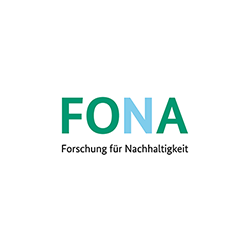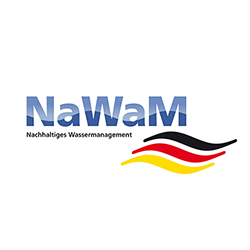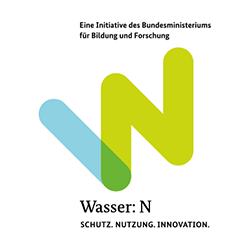Water recovery from tailings leachates using membrane distillation processes coupled with crystallisation
Background:
Currently, several million m3 of saline leachates from tailings piles are produced annually in Germany, most of which have to be disposed of by discharge into water bodies. Established treatment methods such as reverse osmosis or evaporation are ruled out for technical or economic reasons. Membrane distillation (MD) is a relatively new technology for the concentration of solutions, which is also suitable for highly concentrated salt solutions. The possibility to use low calorific heat sources and expected low investment costs are promising aspects for the use of MD in this context. However, the development of a suitable process adapted to the requirements, including suitable vacuum MD (VMD) modules, is still pending. This applies both to the already rather established polymer membranes and to new developments of ceramic membranes, which largely offer even higher chemical, thermal and mechanical stabilities. In the project, an optimized overall process is to be developed by combining the VMD and crystallization processes, in which usable salts or salt solutions and distilled water can be obtained from the tailings leachates. The process is to be tested on site with a pilot plant and subsequently subjected to a technical-economic evaluation. To achieve this, a further development of the MD technology, as well as of the ceramic MD membranes is necessary. The project is being worked on by 5 partners with different focal points.
Aims:
The aim is to develop an efficient treatment process for tailings leachates by combining water removal by membrane distillation with subsequent crystallization and demonstration of the process in field trials. The following central objectives are defined: Development of suitable membranes and membrane distillation modules. Recovery of water and usable salts or salt solutions. An energy efficiency of the separation process measured by a GOR of at least two and comparable to a two-stage technical evaporation. Lower capital and operating costs than conventional processes, especially than two-stage technical evaporation. With a condensate capacity of at least 30 l/h, the pilot plant is to enable practical testing. The aim is to demonstrate that the process can be operated in a controlled and stable manner, i.e. that crystallization of salts in the membrane distillation module is permanently avoided and that supersaturation is reduced in a controlled manner in a spatially separated crystallization unit.



